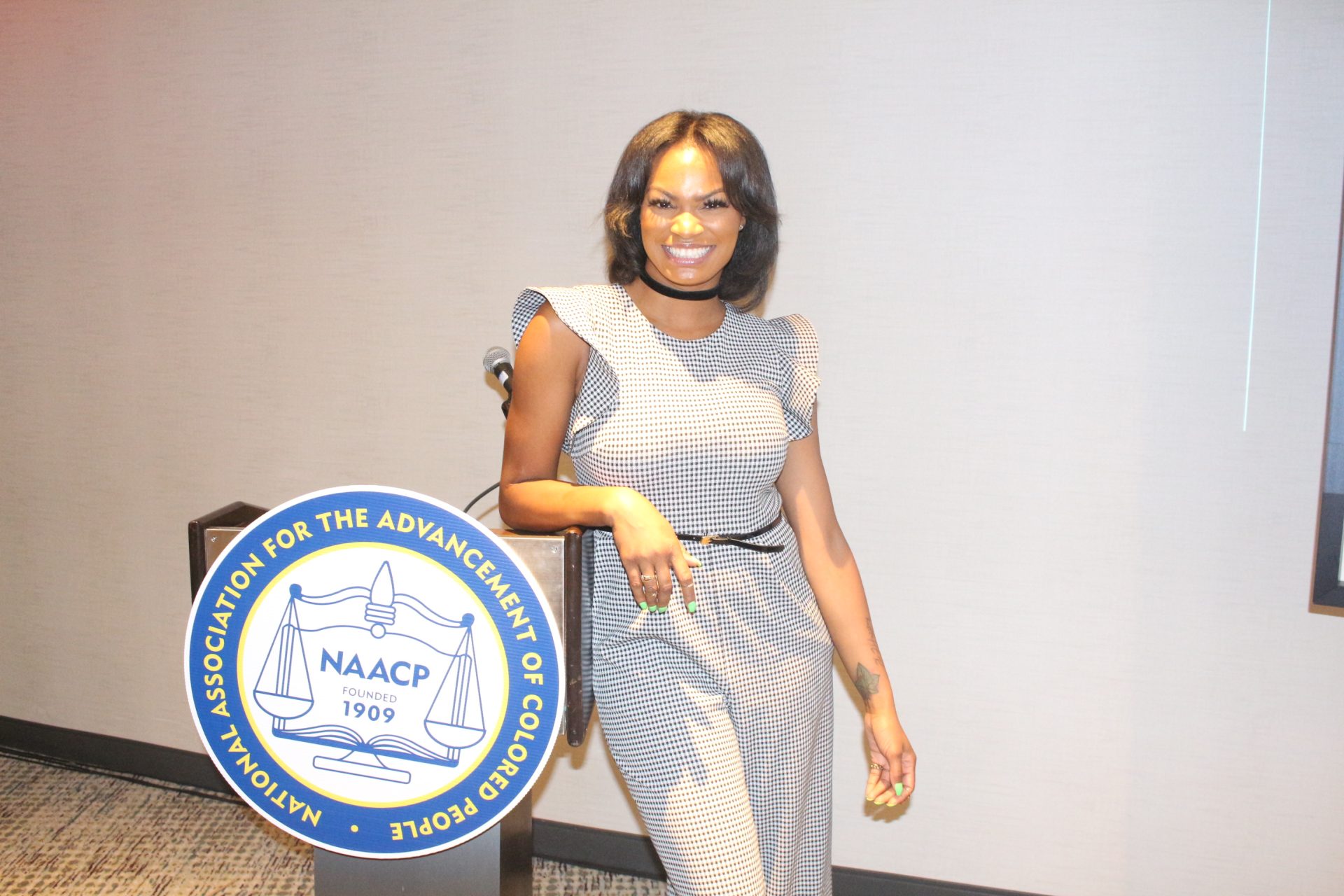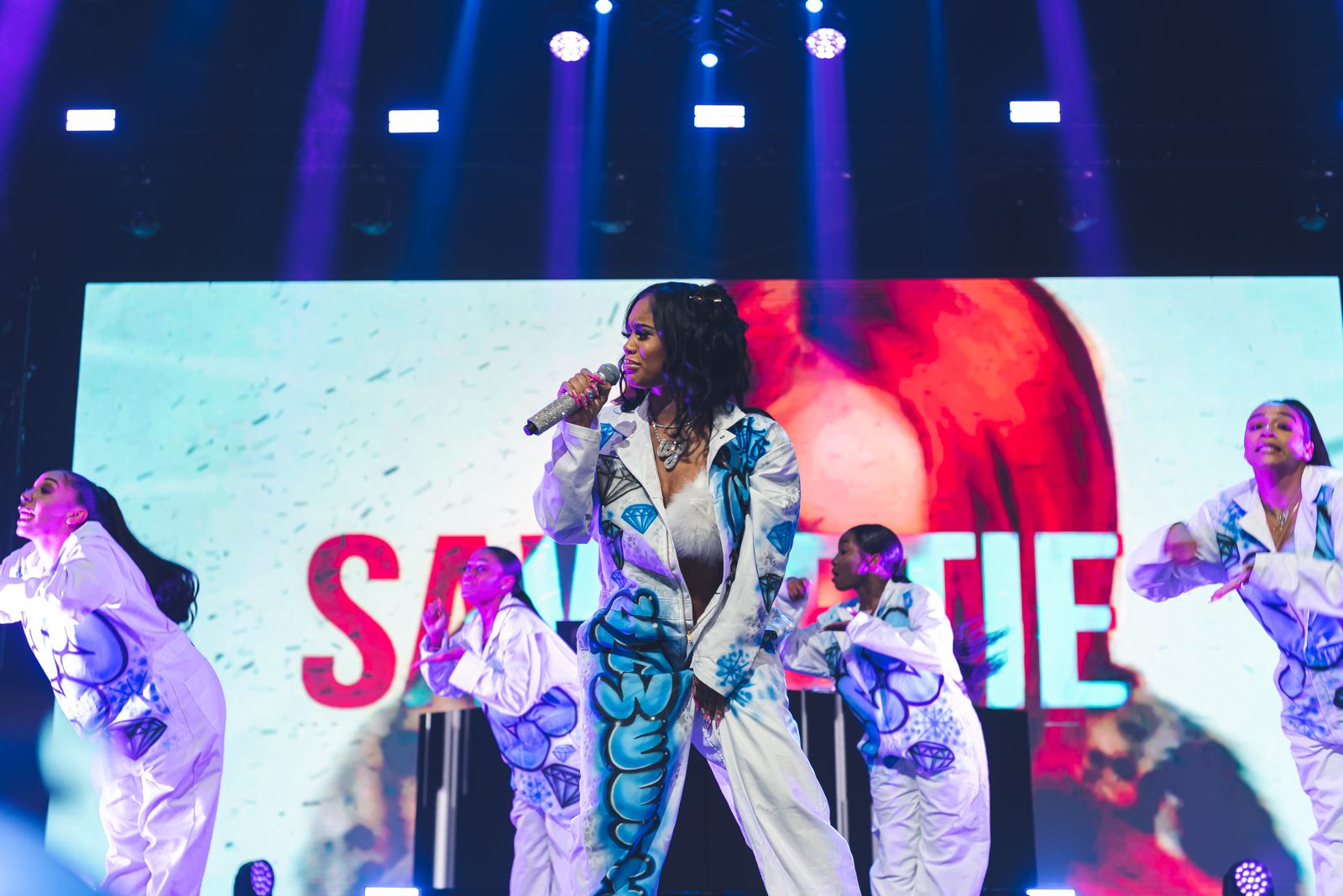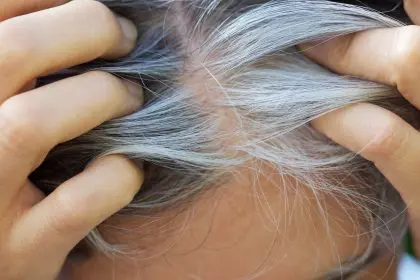
Rapper-actor T.I. stoked the fires of controversy once again this week after the star shared his thoughts on the upcoming U.S. presidential election and former Secretary of State Hillary Clinton’s chances of claiming the presidency. Tip stated that he wouldn’t vote for a woman to be president and while declaring that he wasn’t a sexist, he proceeded to explain his position with explicitly sexist rhetoric.
“Not to be sexist but, I can’t vote for the leader of the free world to be a woman,” he told DJ Whoo Kid during a Shade 45 interview. “Just because, every other position that exists, I think a woman could do well. But the president? It’s kinda like, I just know that women make rash decisions emotionally — they make very permanent, cemented decisions — and then later, it’s kind of like it didn’t happen, or they didn’t mean for it to happen. And I sure would hate to just set off a nuke. [Other leaders] will not be able to negotiate the right kinds of foreign policy; the world ain’t ready yet. I think you might be able to the Loch Ness Monster elected before you could [get a woman].”
Apparently, Tip has never heard of Margaret Thatcher or Kim Campbell, women who were elected Prime Ministers in the U.K. and Canada, respectively. His words sounded like a bad comedy routine from a late night stand-up special, but it reflected a very real misogyny in so many Black men that goes beyond calling women “b—-es” and “h–s.” Too often, brothers have defined “manhood” by the ability to control or lead. But being a man doesn’t mean that you were born inherently capable of leadership, so how can being a woman guarantee that you are incapable of it? And control is the aim in everything, from how we regulate women’s clothes to how we determine whether or not they should be “allowed” to occupy spaces of political power.
The misogyny inherent in Western culture isn’t limited to Black men, of course. But when addressing the ills of our specific community, we have to begin with how we view women. The focus on “plight of the Black man” has often meant just that — that we focus on Black men — and in centering manhood, we’ve reduced the fight of women and even LGBTQ members of the Black community to a peripheral or entirely ignored issue. In addressing our oppression, we have glossed over those who remain oppressed within the context of our own culture. And in regard to our women, we ignore so much of our own history.
So much of our history is filtered through a Eurocentric lens, and that colors the way we’ve viewed “matriarchal societies” historically. Our ideas about ancient and pre-colonial African societies are shaped by the way European historians saw them or judged against European societal standards. As such, there is much debate as to whether or not matriarchal societies ever existed in Africa. Some have dismissed historical African matriarchies as the construct of the feminist imagination, but those critics have often looked for African matriarchies that fit Western definitions.
The Akan of Ghana are a traditionally matrilineal culture, that is to say that a family’s history is traced through the mother’s lineage, not the father’s — and their history includes women in positions of political power. According to Tarikhu Farrar’s piece “The Queen Mother, Matriarchy and the Question of Female Political Authority In Pre-colonial African West African Monarchy,” the “Akan queen mother, more properly, the ohemmaa (literally, ‘female ruler’), wielded true political power and could, under certain conditions, assume full control of central authority; she could become the ‘king,’ the omanhene.”
In Egypt and Kush, the children took their surname from the mother and that the mother controlled both the household and the fields. In Kush, particularly, the Queen Mother had the right to choose the next Pharaoh. In his book Pre-colonial Black Africa, Cheikh Anta Diop explains that in the African custom of matrilineal succession, very strict rules were observed which stated that the heir of the throne was not the king’s son but the son of the King’s first-born sister (the king’s nephew) because they believed that patriarchal parentage could be disproved or fabricated — but it’s a lot more difficult to disprove who a child’s mother is. Diop also discovered that many cultures in precolonial Africa held their women to a generally higher status than their European or Asian counterparts did in their respective societies, as reflective in female political power in parts of Africa at the time.
In order for the Black community to truly begin to throw off the shackles of psychological imperialism, we must discard ideas that promote the oppression, subjugation or marginalization of women. And in doing so, we should be critical of “progressives” who willfully promote misogynistic, homophobic and transphobic ideas as “progress.”
Min. Louis Farrakhan’s “Justice Or Else” rally was undoubtedly a moving and monumental moment for those in attendance and those who watched on C-SPAN and online. The minister’s words of empowerment to the Black community on the 20th anniversary of his historic Million Man March were timely and necessary, as Black people continue to push against oppressive forces that would keep African Americans subjugated and exploited. But as he neared the end of his two-hour speech, Min. Farrakhan decided to turn his attention to the Black woman and offered some advice on how women should conduct themselves.
Referring to a woman who can’t cook as “a killer in the kitchen,” Farrakhan explained why he thinks more women should follow the Nation of Islam’s example. “I wish I could show you the women in the Nation. These are warriors. These are scholars. But they know how to cook. They know how to sew. They know how to rear their children,” he said. He then praised the women of the Nation for how they dress. “Now brothers and sisters, if a sister came up and stood beside them with a miniskirt and a low cut dress that’s beckoning nursing babies, which one of these sisters would somebody say ‘Hey, baby …’ See, they don’t talk like that to our women. And if they do, it’s a terrible mistake. Now when women are clothed, they earn respect. The beauty of your form is for your husband and if you don’t have a husband — keep it covered. Because the one that you get as a husband will be the dog that saw what he wanted and it wasn’t you, it was the beauty of your form — those beautiful hips, those succulent lips.”
Farrakhan’s position on women has remained fairly unchanged over the years; his latest words shouldn’t come as a shock to anyone. But we should ask ourselves whether or not his organizing of a moving and monumental event absolves him of critique for promoting beliefs that would reduce women to the kitchen and knitting circles as though men don’t-won’t-can’t-shouldn’t cook or sew; and for operating under the colonized idea that Black women who don’t “cover up” are somehow less than virtuous — as opposed to challenging men to not be led by their carnal desires just because they’ve encountered a woman who they find attractive. Black power is for all Black people. And Black women’s power goes far beyond anyone’s kitchen and isn’t defined by their wardrobe. We’ve seen too much evidence of the power of Black women to try and diminish or negate that dominion.
















